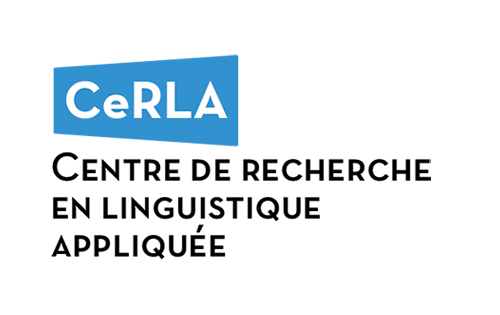Mise à jour le 22 oct. 2024
Publié le 3 mai 2022 – Mis à jour le 22 octobre 2024
Chargé de recherche, italianiste
alessandro.carlucci@mod-langs.ox.ac.uk
Alessandro Carlucci est Lecturer in Italian à Pembroke College, Université d’Oxford. De 2019 à 2024, il a travaillé à l'Université de Bergen, où il était responsable d'un projet de recherche sur le rôle du contact linguistique dans l'histoire de la langue italienne. Il est consultant auprès de l'Oxford English Dictionary. Il est également l'auteur de The Impact of the English Language in Italy: Linguistic Outcomes and Political Implications (Lincom, 2018) et de Gramsci and Languages: Unification, Diversity, Hegemony (Brill, 2013; Haymarket, 2015).
Domaines de recherche : linguistique et dialectologie romanes ; sociolinguistique historique et contemporaine ; multilinguisme ; langues en contact ; intercompréhension ; traduction ; histoire des idées linguistiques ; Antonio Gramsci
Alessandro Carlucci est Lecturer in Italian à Pembroke College, Université d’Oxford. De 2019 à 2024, il a travaillé à l'Université de Bergen, où il était responsable d'un projet de recherche sur le rôle du contact linguistique dans l'histoire de la langue italienne. Il est consultant auprès de l'Oxford English Dictionary. Il est également l'auteur de The Impact of the English Language in Italy: Linguistic Outcomes and Political Implications (Lincom, 2018) et de Gramsci and Languages: Unification, Diversity, Hegemony (Brill, 2013; Haymarket, 2015).
Domaines de recherche : linguistique et dialectologie romanes ; sociolinguistique historique et contemporaine ; multilinguisme ; langues en contact ; intercompréhension ; traduction ; histoire des idées linguistiques ; Antonio Gramsci
- Publications récentes
-
- Carlucci, A. ‘L’histoire de l'intercompréhension italo-romane et le manuscrit Plut. 90 inf. 27 de la bibliothèque Laurentienne de Florence’, Mélanges de l'École française de Rome, 135 (2023), 1: 5-16;
- Calamai, S., Nodari, R., Soria, C., Carlucci, A. ‘Linguistic Autobiographies: Towards the Creation of a Multilingual Resource Family’, in T. Erjavec and M. Eskevich (eds), Selected Papers from the CLARIN Annual Conference 2022 (Linköping University Electronic Press, 2023): 23-32;
- Carlucci, A. ‘Communicating in Different Vernaculars: Italo-Romance Intercomprehension in Historical Perspective’, in A. Petrocchi and J. Brown (eds), Languages and Cross-Cultural Exchanges in Renaissance Italy (Turnhout: Brepols, 2023): 65-93;
- Carlucci, A. ‘Opinions about Perceived Linguistic Intelligibility in Late-Medieval Italy’, Revue Romane, 57 (2022), 1: 140-165;
- Carlucci, A. ‘Who Could Understand the Commedia? Multilingualism, Comprehension and Oral Communication in Medieval Italy’, in N. Havely, J. Katz and R. Cooper (eds), Dante Beyond Borders: Contexts and Reception (Cambridge: Legenda, 2021): 132-144;
- Carlucci, A. ‘The Impact of New Contacts on an Old Pattern: The Modifier-Modified Order in the Formation of Italian Compounds’, in C. Pountain and B. Wislocka Breit (eds), New Worlds for Old Words: The Impact of Cultured Borrowing on the Languages of Western Europe (Wilmington and Malaga: Vernon Press, 2021): 191-209;
- Carlucci, A. ‘How Did Italians Communicate When There Was No Italian? Italo-Romance Intercomprehension in the Late Middle Ages’, The Italianist, 40 (2020), 1: 19-43;
- Carlucci, A. ‘Translation, Contact and Change: A Theoretical and Empirical Assessment of Non-Lexical Anglicisms’, in G. Bonsaver, A. Carlucci and M. Reza (eds), Italy and the USA: Cultural Change through Language and Narrative (Cambridge: Legenda, 2019): 246-261;
- Carlucci, A. ‘Marxism, Early Soviet Sociolinguistics, and Gramsci’s Linguistic Ideas’, Language Sciences, 70 (2018): 26-36;
- Carlucci, A. ‘Egemonia e linguistica nella ricerca internazionale’, in F. Frosini and F. Giasi (eds), Egemonia e modernità. Il pensiero di Gramsci in Italia e nella cultura internazionale (Rome: Viella, 2019): 601-616;
- Carlucci, A. ‘Sobre los intereses lingüísticos de Gramsci’, in D. Kanoussi (ed.), Estudios sobre Gramsci. Una pequeña puesta al día (Puebla: BUAP, 2017): 131-138;
- Carlucci, A. ‘Language, Education and European Unification: Perceptions and Reality of Global English in Italy’, in N. Pizzolato and J. Holst (eds), Gramsci: A Pedagogy to Change the World (Berlin: Springer, 2017): 127-148;
- Carlucci, A. ‘Per la storia degli influssi alloglotti: fr. cogestion e it. cogestione’, Lingua nostra, 78 (2017), 1-2: 56-58;
- Carlucci, A. ‘Revisiting the History of Tuscan Consonants: The Type stùpito ‘stupid’ (< STUPĬDU(M))’, Zeitschrift für romanische Philologie, 133 (2017), 2: 549-584;
- Carlucci, A. ‘English Influences in Contemporary Italian: Innovation or Exploitation?’, Modern Language Review, 112 (2017), 2: 381-396;
- Carlucci, A. ‘Gramsci, Sardinia and the Early Italian Reception of Kipling’, in S. Jossa and G. Pieri (eds), Chivalry, Academy, and Cultural Dialogues: The Italian Contribution to European Culture. Essays in honour of Jane E. Everson (Cambridge: Legenda, 2016): 223-235.
- Autres publications



